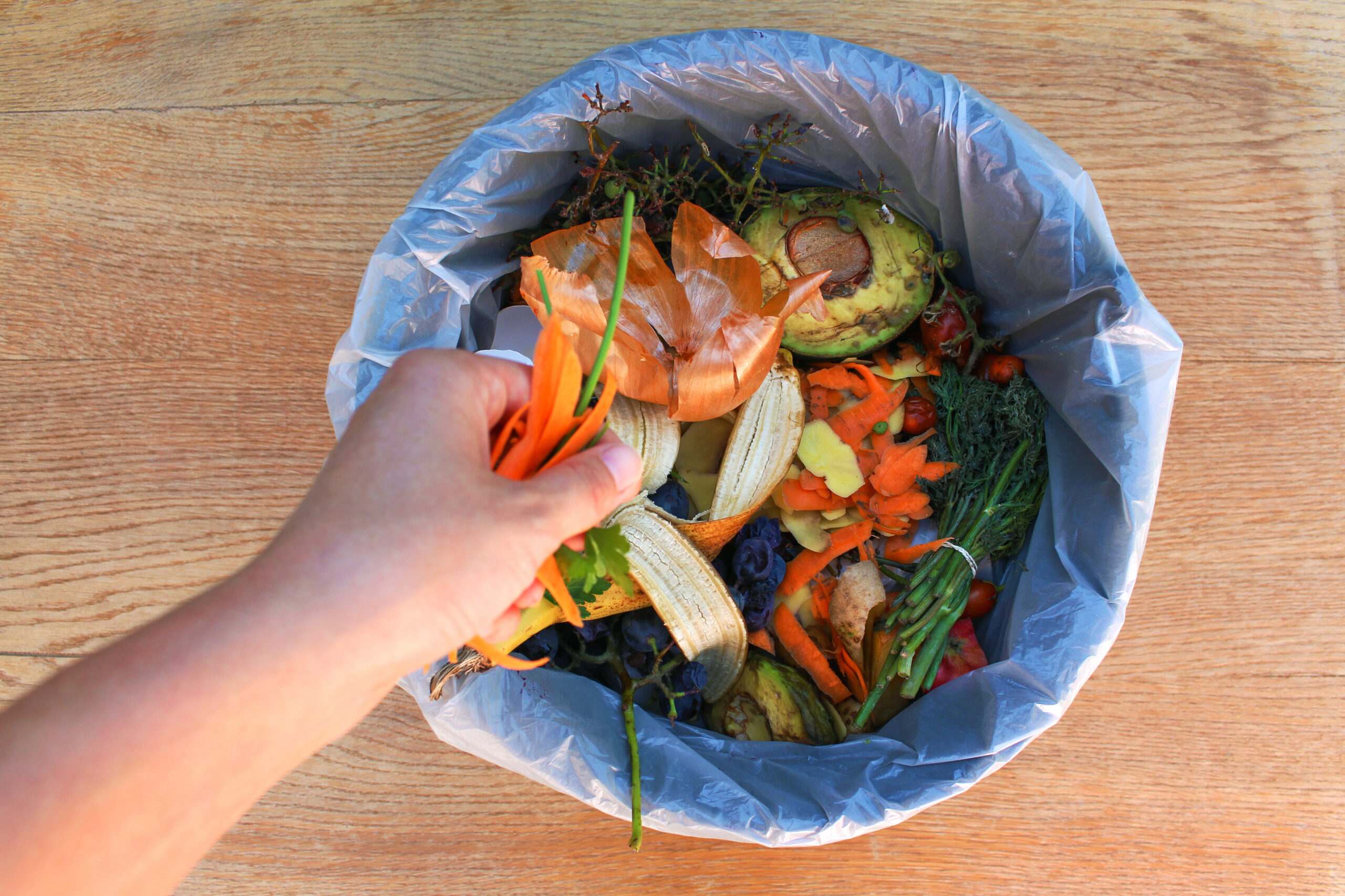Compost more with these tips.
You might be aware that there’s a problem with excessive waste in the Truckee Meadows. But what exactly are we throwing away? In 2018, Washoe County conducted a waste characterization study to answer that question. The study revealed that the largest category was food waste at a whopping 22.6 percent of the total waste stream being sent to the landfill. This was followed closely by yard waste and dry recoverable fibers (paper). Most of these top three categories could have been diverted from the landfill by being composted.
The United States sends about 40 million tons of food waste to landfills each year; that’s the mass of about 45 Golden Gate bridges.
Here are a few simple steps to reduce food waste in your home, and even benefit your community and the environment while you’re at it:
- Plan ahead and buy less. Planning meals and making a list before going to the store will help reduce your tendency to buy on impulse and help you save money. Check your fridge and cabinets to see what you may already have.
- Use food before it goes bad. If you don’t eat everything you prepare, freeze it for later or have a leftover day each week, or use leftovers as ingredients in other meals.
- Understand food labeling. With the numerous labels and numbers on food packaging, it is easy to get confused about the actual expiration date. Check out the QR code for informative resources.
- Donate food. Donating unwanted food to a food bank is a great way to save food while helping to feed your community. You also can share excess food with friends and family.
- Compost! If you do have food scraps, keep them out of the landfill by composting.
What is Composting?
Composting is a natural process in which biodegradable items such as food, yard clippings, and other organic materials are broken down into a rich humus, or nutrient-rich soil. Anything that grows will decompose eventually; composting speeds up the process by providing an ideal environment for bacteria, fungi, and other decomposing organisms to do their work.
Not only does composting reduce your contributions to the landfill, but it also reduces methane emissions; landfills produce high amounts of methane. Adding compost to your soil adds key nutrients that will be used by your plants and helps retain soil moisture. In addition, it reduces the need for chemical fertilizers.
Composting Basics
Composting can be done indoors or outdoors. The method you choose will depend on several factors: where you live, how much space you have, how much organic waste you produce, and how much time you want to spend on the process.
One common method of indoor composting is vermicomposting, or worm composting. All you need is a bin with holes for ventilation and drainage, worms, and organic material. As for outdoor composting, a closed compost bin typically has an opening on the top, for you to add materials, and on the bottom, so you can set it directly on the ground. This is one of the simplest and cheapest methods for small-scale composting. Compost tumblers, also used outside, are sealed drums that can be spun to aid aeration. Tumblers speed up the compost process, keep pests out, and are ideal for larger amounts of organic material. Use the QR code below to find information on how to build your own compost bin.
In order for decomposing organisms to thrive in your compost pile, you need four key components: carbon, nitrogen, air, and moisture. “Brown” items — dry materials such as dry leaves, twigs, and paper — are high in carbon content, while “green” items — moisture-containing items such as food scraps, coffee grounds, and grass clippings — contain more nitrogen. The key ratio for a healthy compost pile is three parts brown to one part green. The compost also needs enough water to be moist but not dripping wet. Finally, adding air to your compost will speed along the process.
If getting your hands dirty doesn’t sound like your definition of fun, local businesses are available to do the dirty work for you. You can gather your organic materials and either drop them off at a community collection location or arrange to have them picked up if you live in one of these businesses’ service areas. Learn more about composting, food waste reduction, and local sources for composting essentials, such as Down to Earth Composting in Reno and Full Circle Soils & Compost in Carson City, by using the QR code below.
It is our responsibility to divert as much waste as possible from the landfill. Shopping smarter, reducing food waste, and composting are just a few ways to play your part in creating a more sustainable Truckee Meadows. For other ways to have a positive environmental impact, visit Ktmb.org.

Brittany Shelton-Dooley is the AmeriCorps community educator at Keep Truckee Meadows Beautiful. She graduated from Wittenberg University with a Bachelor of Science in environmental science. With a deepening admiration for sustainability and education, she hopes to continue to spread awareness of the importance of reducing our ecological footprint.


